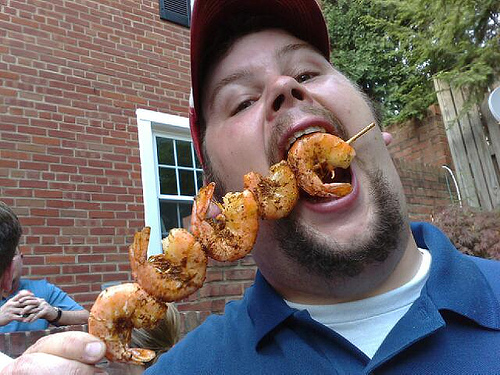 Shrimps aren’t haram for Muslims, and are tasty for a lot of people in the Middle East. But are they safe to eat if they’re bought from China or Thailand? A new Saudi project comes to light.
Shrimps aren’t haram for Muslims, and are tasty for a lot of people in the Middle East. But are they safe to eat if they’re bought from China or Thailand? A new Saudi project comes to light.
The imported fish and seafood industry: shrimp, prawns, and various species of both fresh and salt water fish has received some unfavorable attention in the American news media thanks to filthy fish products being imported into the USA and other Western countries (links to Youtube video).
But these kinds of problems could change if aqua farmers in Asia and other locations adopted ideas now being undertaken by Saudi Arabia’s National Prawn Company, noted as one of the “world’s largest integrated pawn farms” in an article in the website ArabNews.com.
Located near the Arabian Red Sea coastal town of Al-Lith, 170 km south of Jeddah, Saudi’s National Prawn Company prawn farm prides itself as using organic methods to grow the prawns without the use of chemicals, fertilizers or antibiotics. The company recently appointed Frederic Millet, a French aquaculture consultant, who has been involved in a number of such projects, including a large shrimp farm off the coast of Ecuador
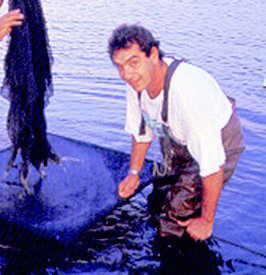 Millet at Work
Millet at Work
Millet’s aquaculture techniques are part of what is known as the Blue Revolution in which over a third of all fish and a quarter of world shrimp production come from aquaculture, one of the fastest growing farming methods in the world.
The ecological importance of work being done by aquaculture specialists like Millet is to produce a high quality product without using chemicals or synthetic growth stimulants (such as antibiotics) which are also used extensively in poultry farms, and beef cattle production, as well as in aquaculture.
Eating filtered sewage
There is a downside of aquaculture and poorly processed sea foods coming from countries like Thailand and China in which not only chemicals and antibiotics are extensively used, but also using sewage and industrial wastewater grow both fish and shrimp products which wind up in restaurants and on the dinner tables of people living in countries thousands of miles of away. We know how China regards standards of production, getting caught using lead and other fatal chemicals in products and children’s toys, so would you trust them with your food?
Millet’s philosophy involves in working with and not abusing the prawns’ natural ecosystem:
“We do not push the ecosystem to its limit. We prefer to extend the system to the maximum that is sustainable through an “All In All Out” strategy within the capabilities of the local environment in a way that leaves it in good condition.”
The NPC (pictured below) decided to work towards a longer term growth plan (20 years) instead of a shorter “5 year plan” that many aquaculture companies adhere to, which includes careful preparation of the ponds in which the prawns are grown, and the integration of all areas of operation, including breeding, feeding, and cleaning of the ponds in order to prevent the outbreak of disease and to insure a high level of sustainability which results in a high quality product.
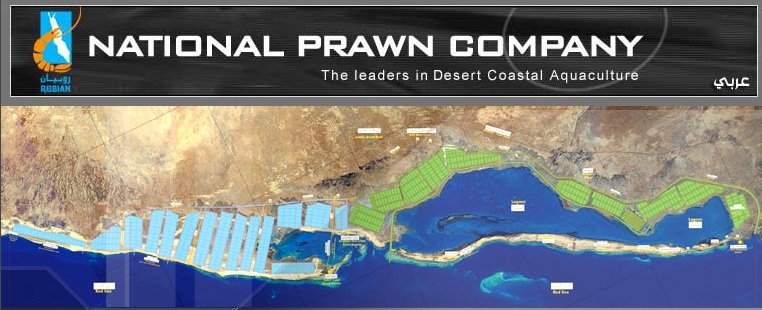 Saudi Arabia’s antibiotic-free shrimp farm. So close to the sea, does beg the question: what is the shrimp “waste” doing to the environment.
Saudi Arabia’s antibiotic-free shrimp farm. So close to the sea, does beg the question: what is the shrimp “waste” doing to the environment.
What’s haram and kosher about it?
In contrast to Jewish Law in which “only fish with fins and scales” are permitted to be eaten, Islamic Law does allow for shrimps and prawns to be consumed, as well and “fish with scales.”
Other kinds of shell fish, including, crabs, mollusks, as well as smooth skinned fish, like sharks, are considered to be “Haram” or forbidden
NPC, with Millet in charge of quality and sustainability, wants the prawns to have a “minimal impact on the environment, and uses low density stocking in its 10-hectare ponds, strict biomass thresholds, and carefully monitors and manages water quality and oxygen levels 24 hours a day.
Image via dcmetroblogger
Read more articles on pollution and chemical impacts on fish and marine life:
Hunt for Air France Flight 447 Brings Marine Garbage Problem to The Surface
Polluting Eilat Fish Farms Moved to Mediterranean
Persian Gulf “Mermaids” Face Manmade Environmental Threats

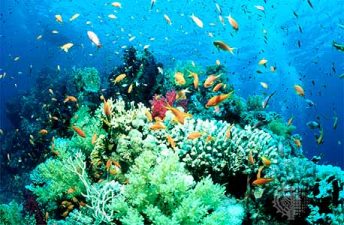
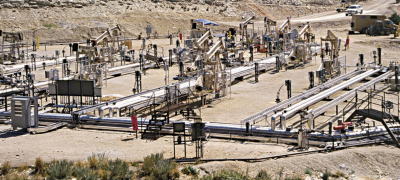
Antibiotic-free, premium quality shrimp using only sustainable methods of culture and production
NPC believes in providing its customers with premium quality, natural shrimp the way nature intended. This means that we produce antibiotic-free shrimp, no hormones and no preservatives using only eco-friendly, sustainable shrimp farming methods.
ShrimpSuck.orgLet's educate people about the disasters of the global shrimp industry, and help them find the best alternatives!